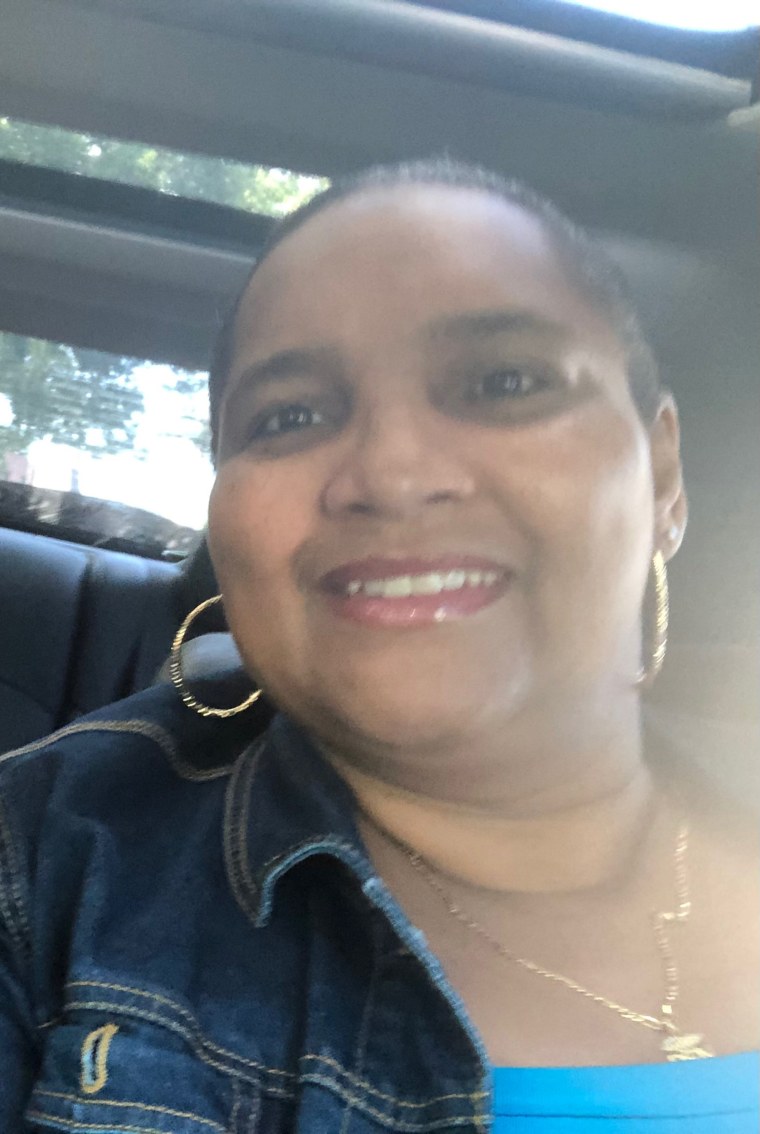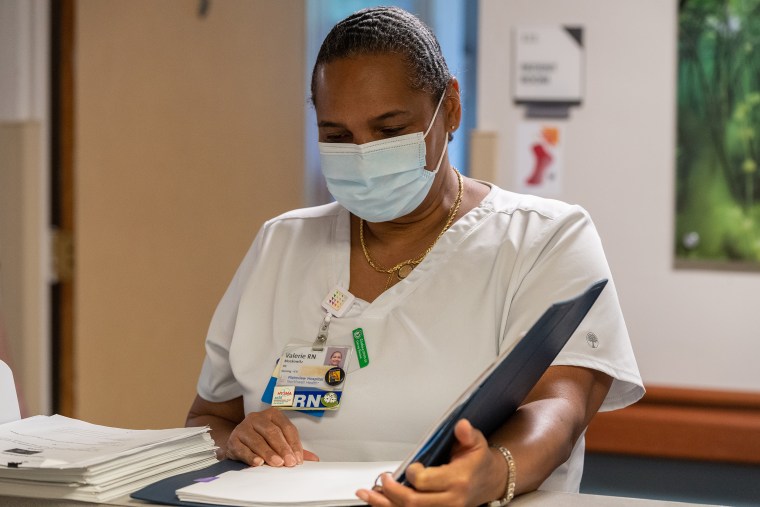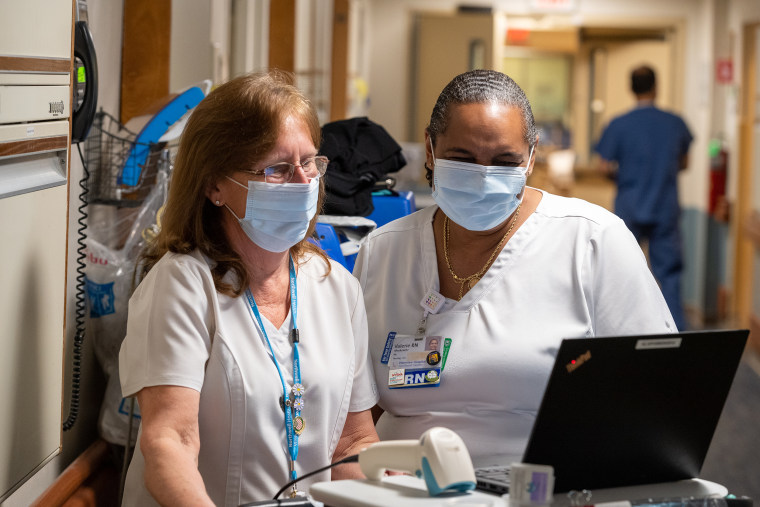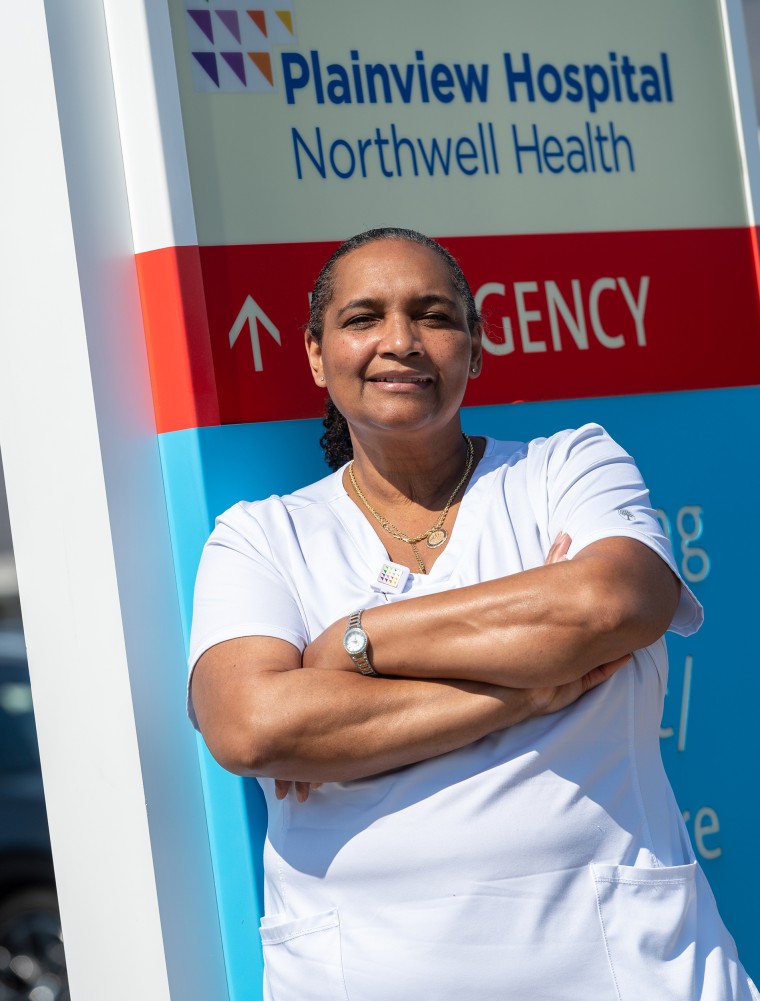When Valerie Moskowitz contracted COVID-19, she worried about recovering from it. While she wasn’t hospitalized, she spent a month at home, struggling to breathe.
As she recovered, she examined her health and decided she needed to do something about it. Her high body mass index put her in the obese category and she weighed 270 pounds. She had Type 2 diabetes, hypertension and had also experienced a transient ischemic attack, sometimes referred to as a mini stroke. The intensive care unit nurse at Plainview Hospital in New York feared if she contracted COVID-19 a second time, she wouldn’t survive.
“I am really such a high risk,” the 52-year-old from Long Island told TODAY. “I may not be as fortunate if I get COVID again … The next time something worse could happen.”

Moskowitz had gained weight while being pregnant and struggled to lose it. During her second pregnancy she developed gestational diabetes and after giving birth she was diagnosed with Type 2 diabetes. Over the years, she tried to lose weight. Sometimes she would lose 20 pounds, but she’d gain it all back and extra.
“It was a spiral effect,” she said. “It’s been a yo-yo. I come from a family that was obese … I just didn’t know what else to do.”
While she spent long days on her feet and would take nearly 20,000 steps a day at work, that wasn’t enough to bolster her health. It didn’t help that on busy days she “inhaled” her lunch to rush back to work. With the COVID-19 surge, work became harder and Moskowitz failed to take care of herself.
“It’s not like we just had two patients. We had four patients, sometimes five patients, what were very critical,” she said. “They were on multiple life-sustaining drugs. They were on respirators. They were just very fragile.”

But being sick for a week really caused her to rethink her life.
“I needed to have the gastric bypass surgery,” she said. “Because I don’t want to go into a second surge without it.”
Moskowitz views the surgery as the "tool" that boosted her weight loss.
“It’s a tool to help me lose this weight because I couldn’t do it on my own,” she said.
She had gastric sleeve surgery in August and committed to a healthier way of eating and more exercise. Every day she walks before or after work. She changed how she eats, including more vegetables, fruits and lean protein, such as chicken. She also enjoys smaller portion sizes.
“I don’t eat until I’m full. I eat until I’m satisfied,” Moskowitz said.

She’s lost 70 pounds since the surgery and no longer takes any diabetes medication. She’s on a lower dose for her blood pressure medications and even thinks her sleep apnea has improved.
“I’m grateful to not have to take the medication regimen that I was on,” she said. “That did something mentally to me. It bothered me.”
While she hopes to lose another 50 pounds to get to her goal weight of 150, she loves how she looks and feels.
“I’m just glad that now I’m in a place where I can see things clearly and I can feel better on all levels … my mental health, emotional health and my physical health,” she said.

She’s learned a lot about herself and how she once used food to cope.
“I was a stress eater,” she said. “I’m definitely now more conscientious about my eating and why I am eating.”
Moskowitz shares tips on what helped her lose the weight.
1. Find support.
Moskowitz works with four people who have all undergone weight-loss surgeries. Having someone who understands what the process is like or might have advice on how to handle something has really helped her to succeed.
“Our bond has become stronger as friends and co-workers and now as people who have this shared surgery,” she said. “So they’re my motivating force and I’m glad for that.”
2. Choose yourself.
Like so many people, Moskowitz felt frustrated that she couldn’t lose weight. But this time, she devoted herself to making changes.
“There is a choice,” she said. “I didn’t feel like I could do anything about it. I just said OK these are the cards I have been given … But I do have a choice now.”
3. Be mindful.
After a long day of work, Moskowitz would often just go home and eat a lot of carbs. They helped her feel full and soothed her emotions. Since the surgery, she pays more attention to how she eats and how she moves.

“I might not eat all day and by the time 4 in the afternoon came around I was like, ‘I need carbs. I need carbs,’ and eating things that I had no business eating,” she said. “But now I no longer do this.”